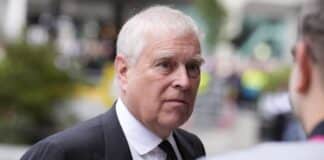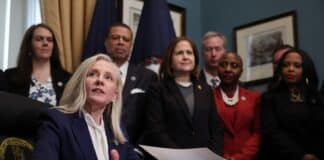The Internal Revenue Service has officially closed its probe into a Florida church that prayed for a local school board candidate during a worship service — affirming the church’s tax-exempt status.
New Way Christian Fellowship in Palm Coast came under scrutiny in 2024 after Jill Woolbright, a local candidate known for her strong conservative and Christian values, briefly addressed the congregation during a service in 2022. Following her remarks, church leaders prayed over her — a moment that triggered media outrage and, eventually, an IRS investigation.
The agency had claimed the church may have violated the Johnson Amendment, a controversial 1954 law that restricts political involvement by tax-exempt organizations. However, after legal pressure from First Liberty Institute and the law firm Jones Day, the IRS sent a letter last month confirming that the church would retain its 501(c)(3) status.
“First Amendment rights don’t end when a pastor, church member, or even a political candidate steps on the platform of a church,” said Jeremy Dys, Senior Counsel at First Liberty Institute, who represented the church.
Dys praised the IRS’s decision to back down on the probe, noting that simply praying for a candidate or allowing a brief address in a worship setting does not constitute a political endorsement or campaign activity.
Woolbright, a bold Christian voice on the school board, had stirred controversy when she spoke about her belief that her service was divinely inspired and that she was fighting “satanic warfare” in local education — a sentiment that resonated with many faith-based voters.
While the IRS initially opened an investigation last summer, First Liberty Institute strongly objected, calling the inquiry not only “inappropriate” but also a violation of religious liberty. The group argued that prayer and pastoral speech are protected forms of religious expression under the First Amendment.
Though President Donald Trump issued an executive order in 2017 directing the IRS to ease enforcement of the Johnson Amendment, the statute technically remains on the books. Still, conservative groups have long argued that the law unfairly censors churches, and this case is the latest in a growing push to restore free speech in America’s pulpits.





